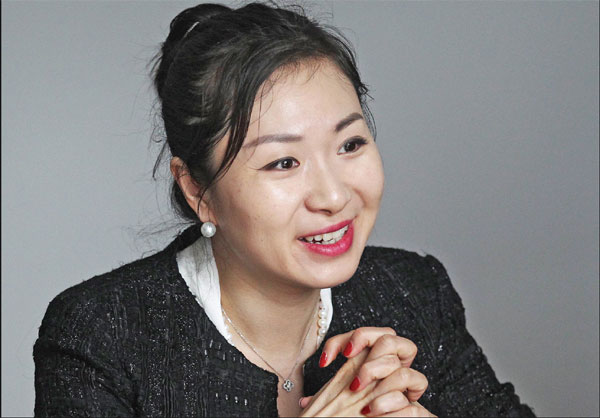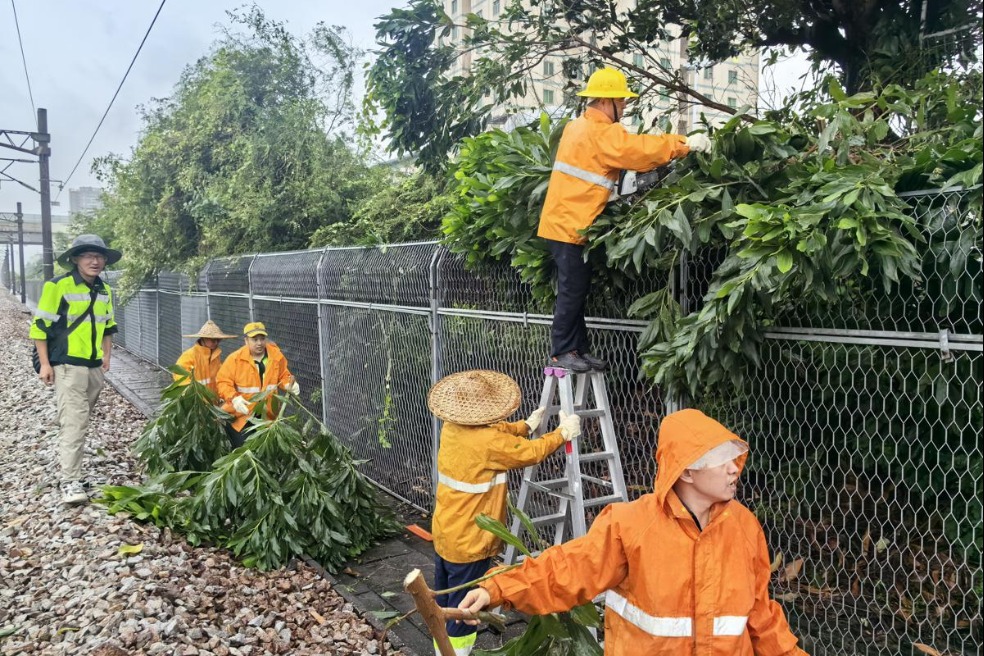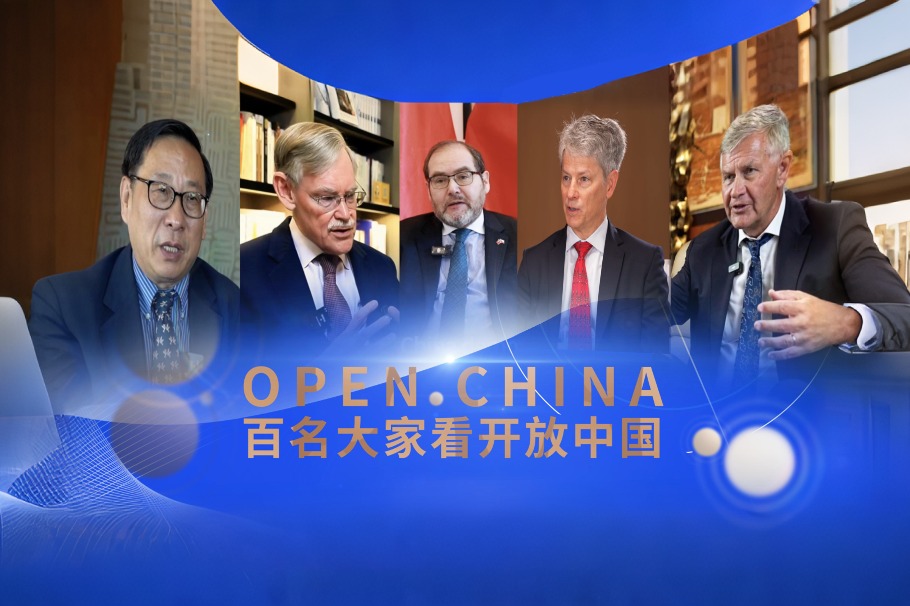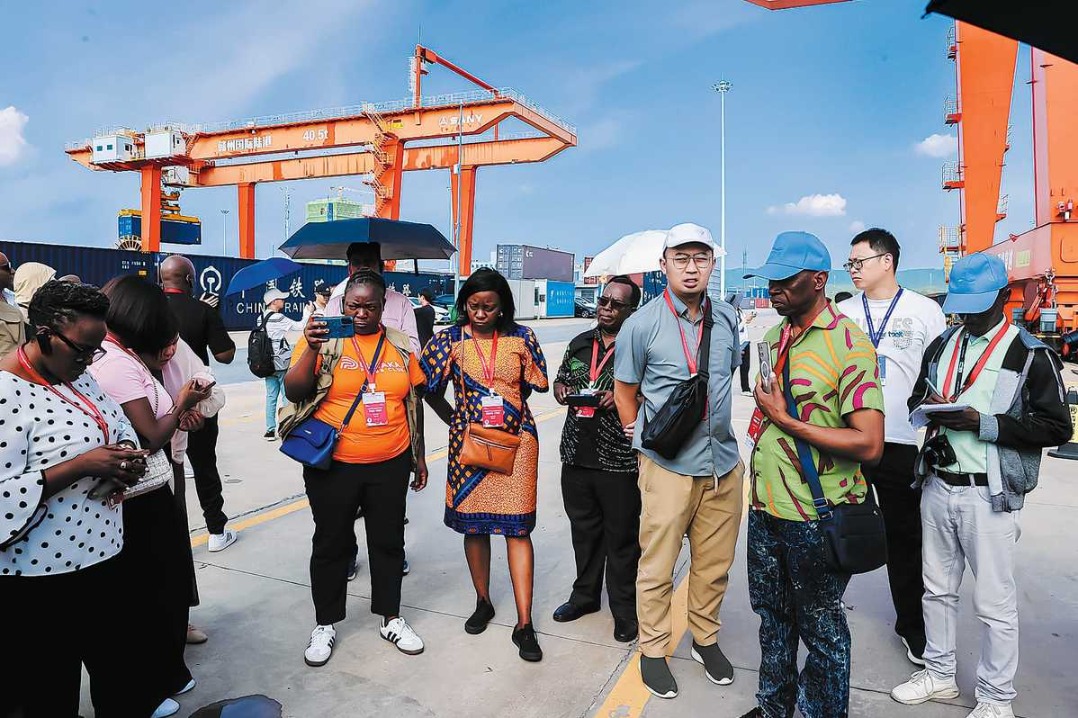Manufacturing 'way forward for Africa'

Investment environment in China was very poor in the 1970s but country still managed to become a manufacturing center, says industry advocate
Helen Hai believes Africa could soon emerge as the manufacturing workshop of the world.
The 39-year-old CEO and founder of the Made in Africa Initiative, a United Nations-backed nongovernmental organization which aims to foster industrialization on the continent, insists detractors who argue that Africa cannot repeat the success of China and other parts of Asia are just plain wrong.
| Helen Hai says that Africa could soon become the manufacturing workshop of the world. Zhang Wei / China Daily |
"China began at the lower end taking advantage of competitive labor but eventually built a supply chain around it and became a manufacturing center for the world for everything," she says.
"Africa can do the same. It is not a one-year process but it could be a 20 or 30-year one."
Hai, who was speaking at the Beichen Intercontinental Hotel in Beijing, is renowned for her dynamic and, almost evangelical passion, for her cause.
She was the whirlwind force behind one of Africa's biggest manufacturing success stories, overseeing the establishment in 2012 of the Huajian shoe-making facility in the Eastern Industrial Park just outside Addis Ababa, which makes shoes for leading brands and employs thousands of local people.
"If you are talking about whether Africa is ready to build this iPhone, I don't think so," she says, holding up her smartphone.
"They just don't have the supply chains. But what is the easy work for them to start with? Definitely shoes, garments and those kind of things."

Hai, who often works alongside former World Bank chief economist Justin Yifu Lin, another advocate of the importance of a manufacturing base for Africa, says Africa has no choice but to reach out to global markets if it wants to develop.
"There is the issue of regional integration and, of course, African nations have to trade more with each other but if you look at Africa as a whole, it only has 2 percent of global GDP. So if you are only looking at that market, you cannot create the millions of jobs that are required. You have to sell to Europe and the US, where the markets are much bigger."
Hai says she has to spend much of her time rebutting arguments that Africans somehow do not have the organizational skill to set up a successful manufacturing base.
"This a challenge actually. Even the World Bank has traditional thinking on this. They come up with business reports and say that in order to do business well you have to meet, say, 100 KPIs (key performance indicators). You need to tick the box," she says. "But by their criteria, China would have failed. The investment environment in China was very poor in the 1970s but the country still managed to become a manufacturing center."
Hai believes there are three essentials for a country to develop its manufacturing industry: manufacturing know-how, enabling governments and the ability to sell to the global markets.
"There was a time when even Europe did not have the know-how. People there were also poor. But when industrialization started, the knowledge made them rich. It then transferred to America and then to Japan in the 1960s and from there to South Korea, the other Asian tigers and then China. Africa has never yet been part of that destination."
Hai, who was brought up in Changchun in Northeast China, is the daughter of a senior executive of one of China's leading insurance companies and a schoolteacher-mother.
"I was taught like many Chinese girls of my generation to behave like a good daughter, which meant to study well," she says.
This she did winning a scholarship at the age of 17 to study in the UK at David Game College in London.
After doing her A Levels there she went on to study actuarial science at CASS Business School, part of City University, where she also completed her master's.
She began her career as an actuary, rising rapidly through a succession of companies, becoming a partner in Jardine Lloyd Thompson, the UK's largest insurance broker, before she was 30.
"I was the youngest female partner in the company's history. The industry in London is packed with white middle-aged men and I think I stood out as a Chinese girl. You have to learn to climb ladders and I climbed reasonably well."
In 2007 she returned to be China chief actuary for Zurich Financial Services, which then sponsored her to do an MBA in a joint program between INSEAD, the European business school and Tsinghua University, where she divided her time between Beijing, Singapore and France.
It was during a leadership coaching session there that she had a major personal conversion.
"I told my Swiss coach that I was looking for true happiness. And he said I needed four dimensions for this: a past, a future, achievement and a purpose. I knew the pillar I was missing was purpose."
She initially decided that was to be an entrepreneur and with two of her INSEAD classmates drew up a business plan to develop her own shoe brand.
This led to a meeting with Zhang Huarong, the chairman of Huajian, who was then in discussions with the late Ethiopian prime minister Meles Zenawi about setting up a shoe manufacturing plant in Addis Ababa.
He invited her on a trip to the Ethiopian capital and eventually asked her to help set up operations there.
"When he asked me, I thought that was the purpose I was searching for, helping a Chinese company invest abroad and become a global company."
The manufacturing plant there is testimony to Hai's organizational skills. Within months she had recruited 2,000 workers and had trained them in the manufacturing disciplines.
"From making the investment decision, it took only three months to start actual production, exporting shoes to the US market."
She says the big advantage of manufacturing in Ethiopia is the labor costs being about a tenth of those in China with workers achieving 70 percent of the efficiency once trained.
"Labor costs are about 20 percent of the cost of producing shoes in China, whereas they are just 3 percent in Ethiopia. The logistics costs are four times greater than in China but they are still only 8 percent of the overall cost."
Hai, who is also a goodwill ambassador for the United Nations Industrial Development Organization, or UNIDO, with a specific industrialization fostering role, has since been invited by Rwandan President Paul Kagame to help with his country's industrialization strategy.
She has since set up her own privately-funded garment manufacturer there, C&H, which now also has a factory in Ethiopia with another one planned in Senegal.
Hai is a firm believer that China's engagement in helping establish an industrial base is much more relevant to Africa's needs than the Washington Consensus agenda of developing a private sector through market-led reforms that had been previously the dominant orthodoxy.
She believes the new approach owes much to the new structural economics ideas of former World Bank chief economist Professor Lin about manufacturing being central to development.
"China lifted 600 million people out of poverty this way and this is the way forward for Africa also," she says.
andrewmoody@chinadaily.com.cn
(China Daily European Weekly 06/16/2017 page32)
Today's Top News
- Summit a key moment for China-EU ties
- Unstable political landscape seen in Japan amid election
- Intl unity in fighting fascism recalled
- Pragmatic discussions can illuminate the way to a brighter future for China-EU ties
- Ruling parties suffer major defeat in Japan's upper house election
- China, EU to hold 25th China-EU Summit in Beijing































